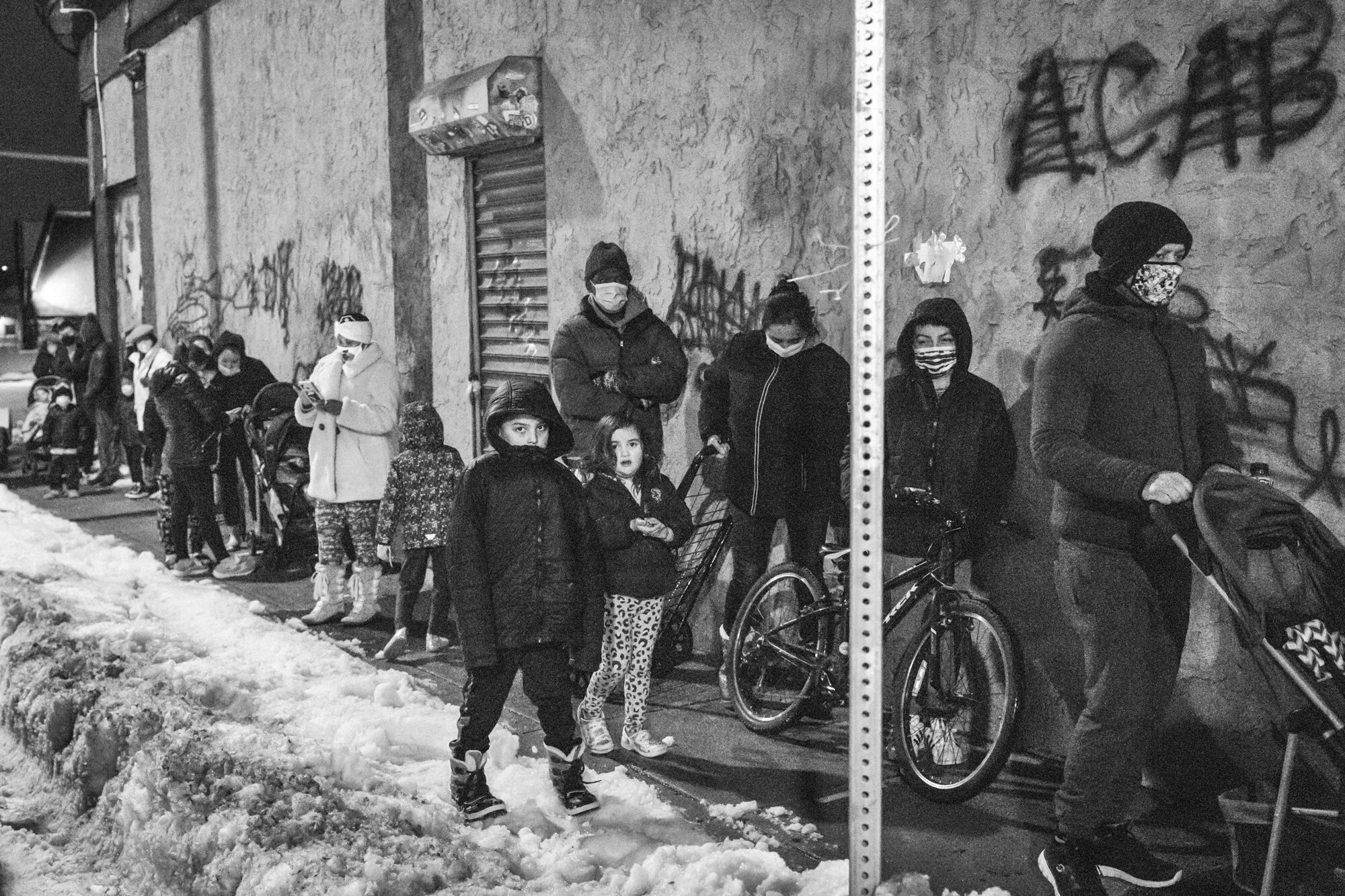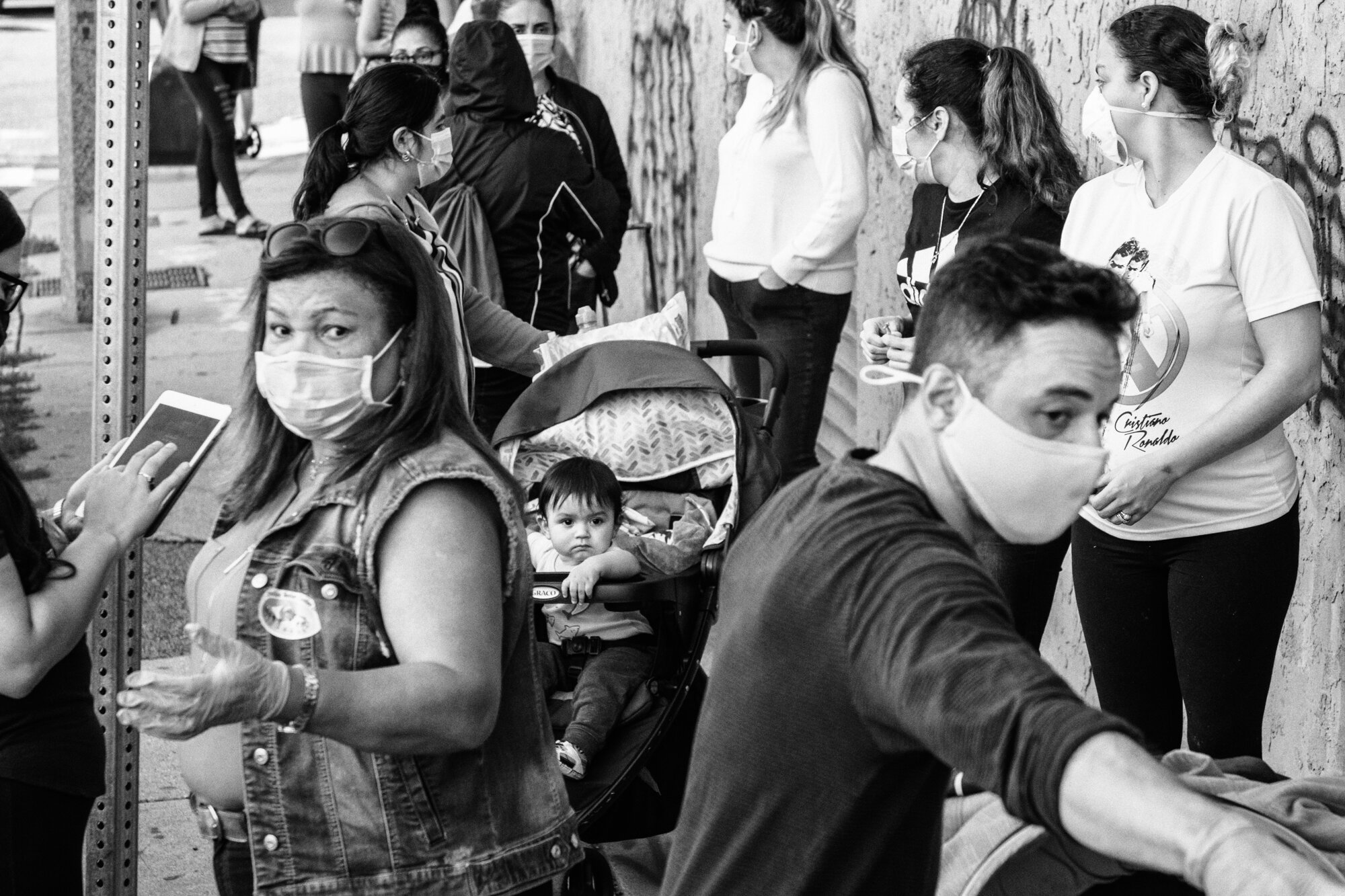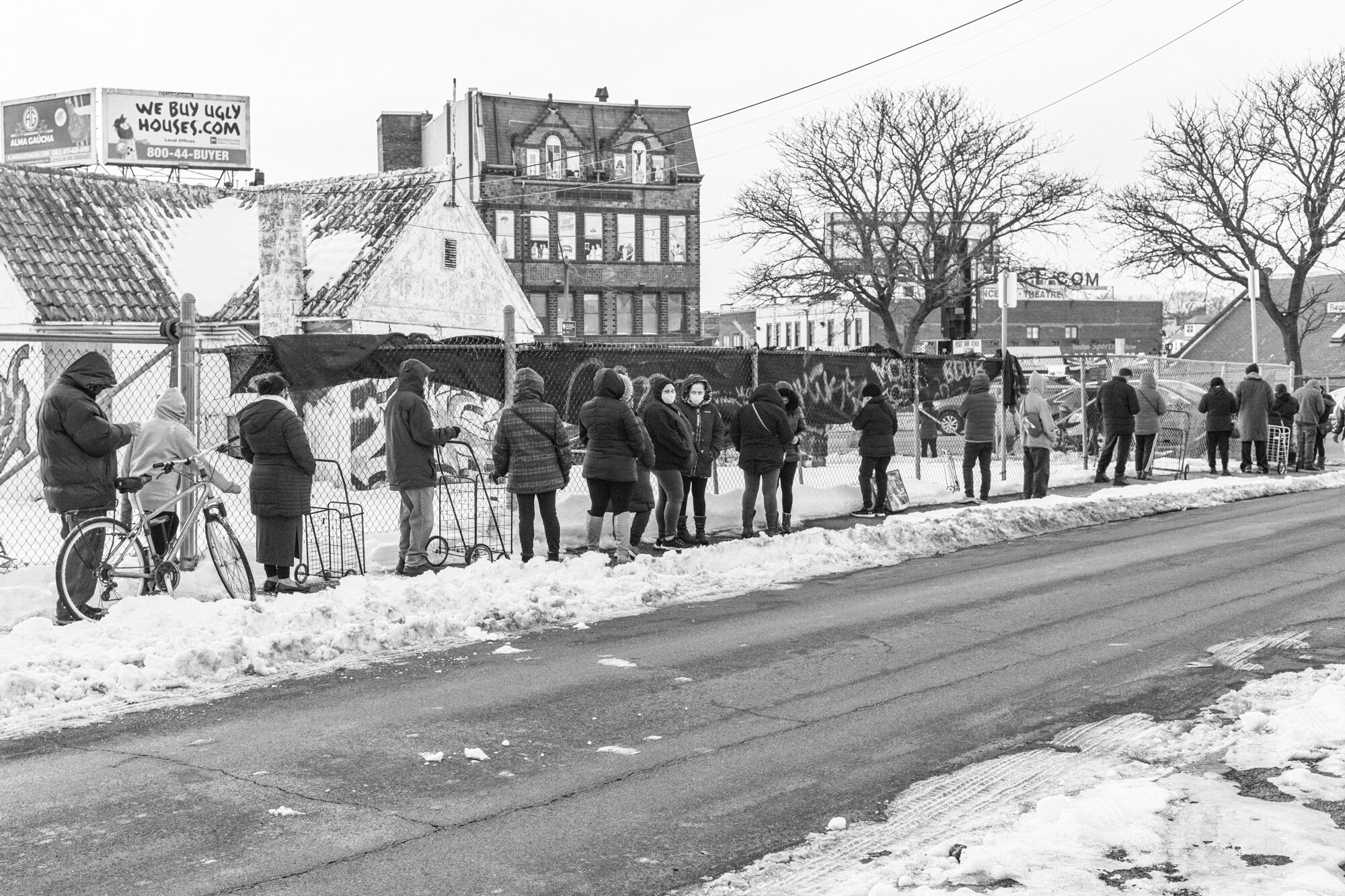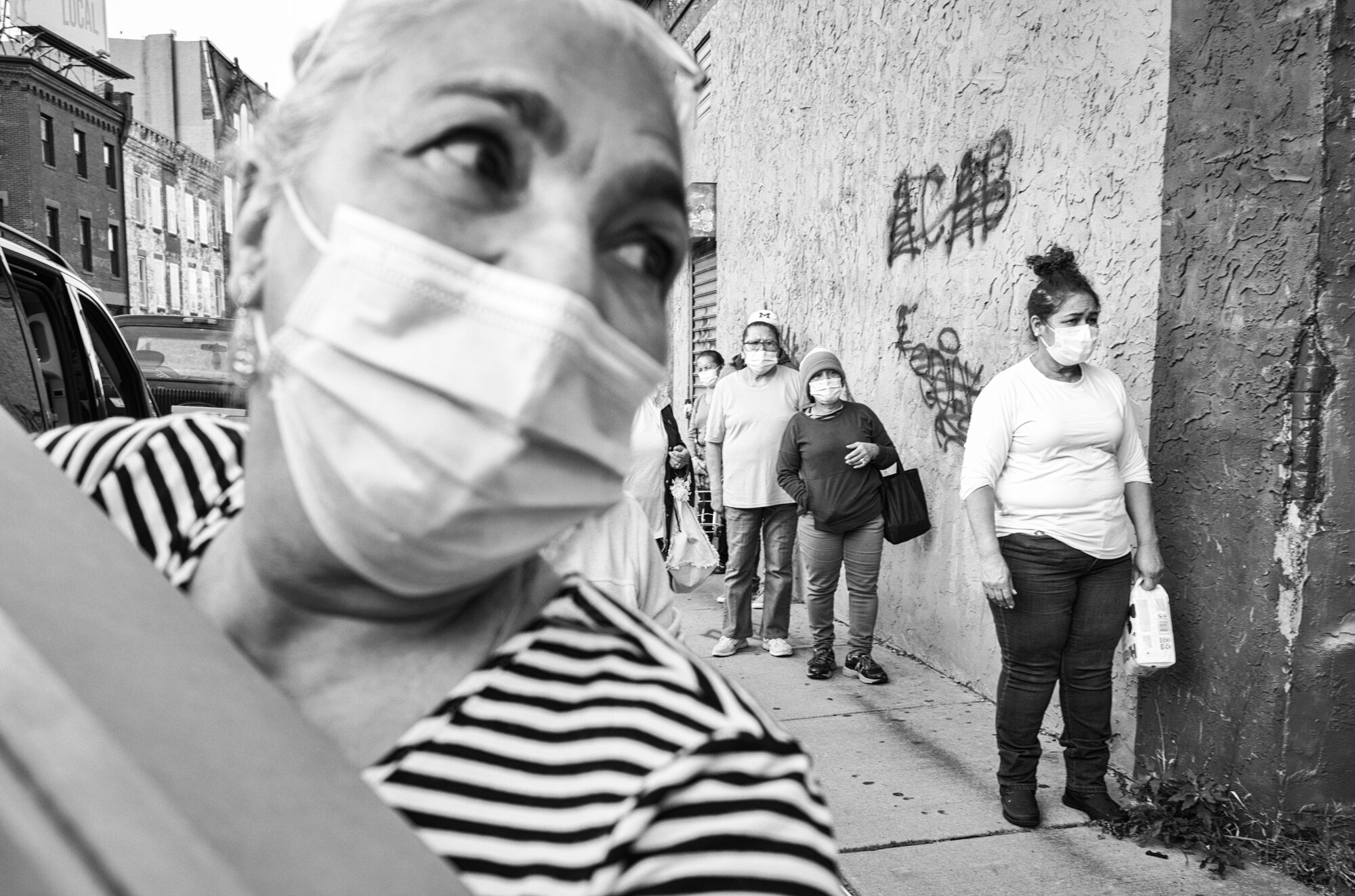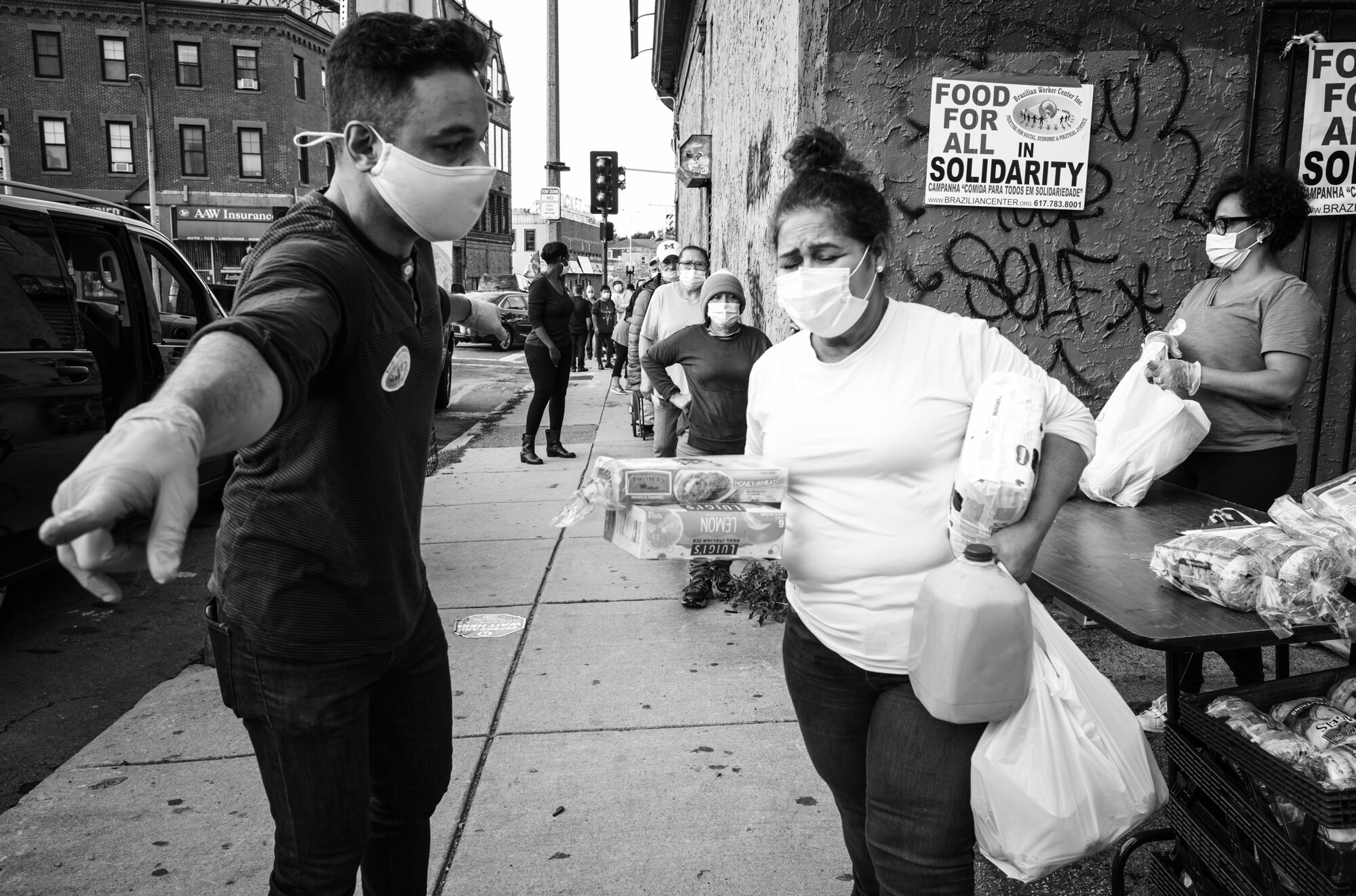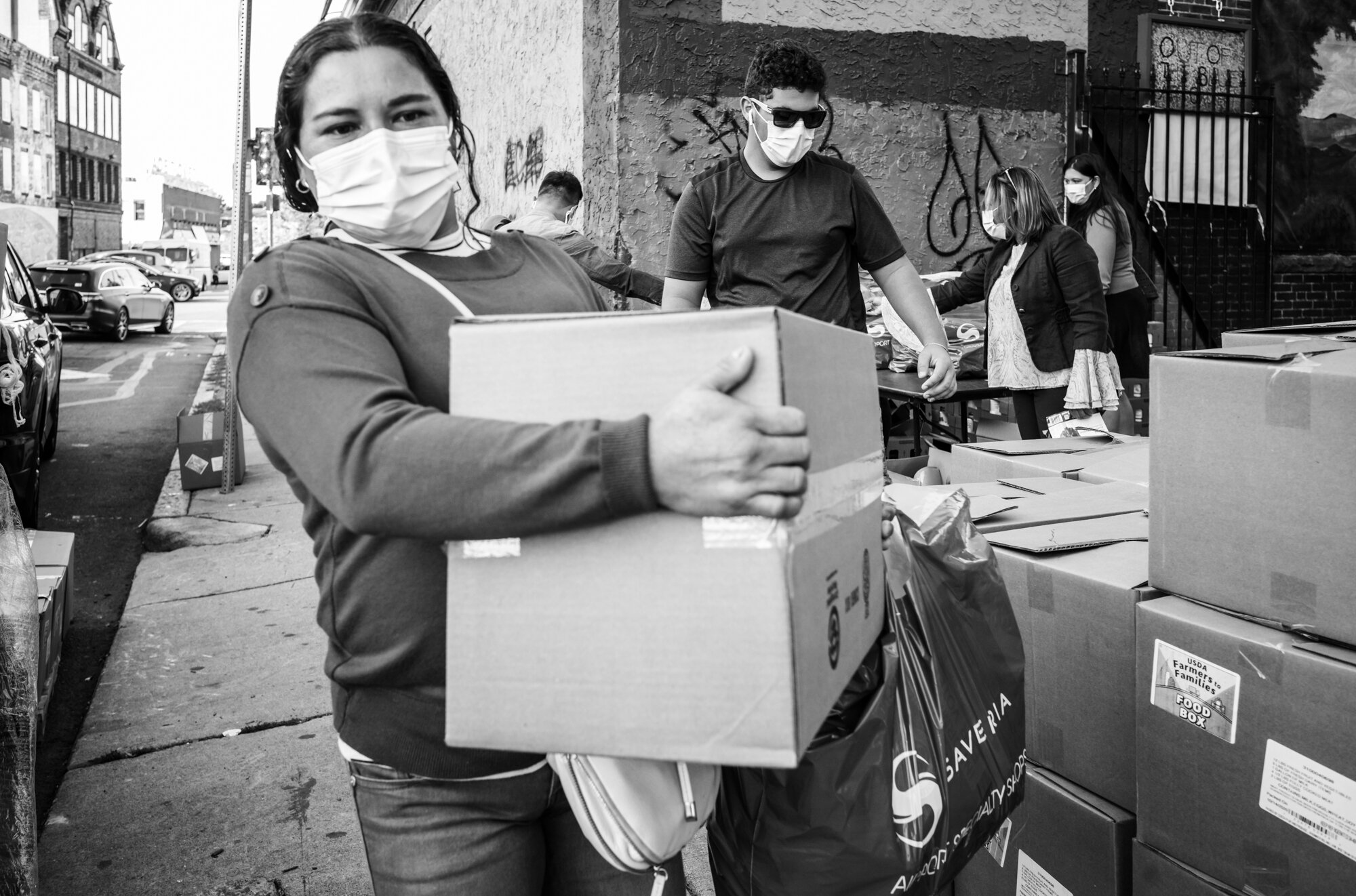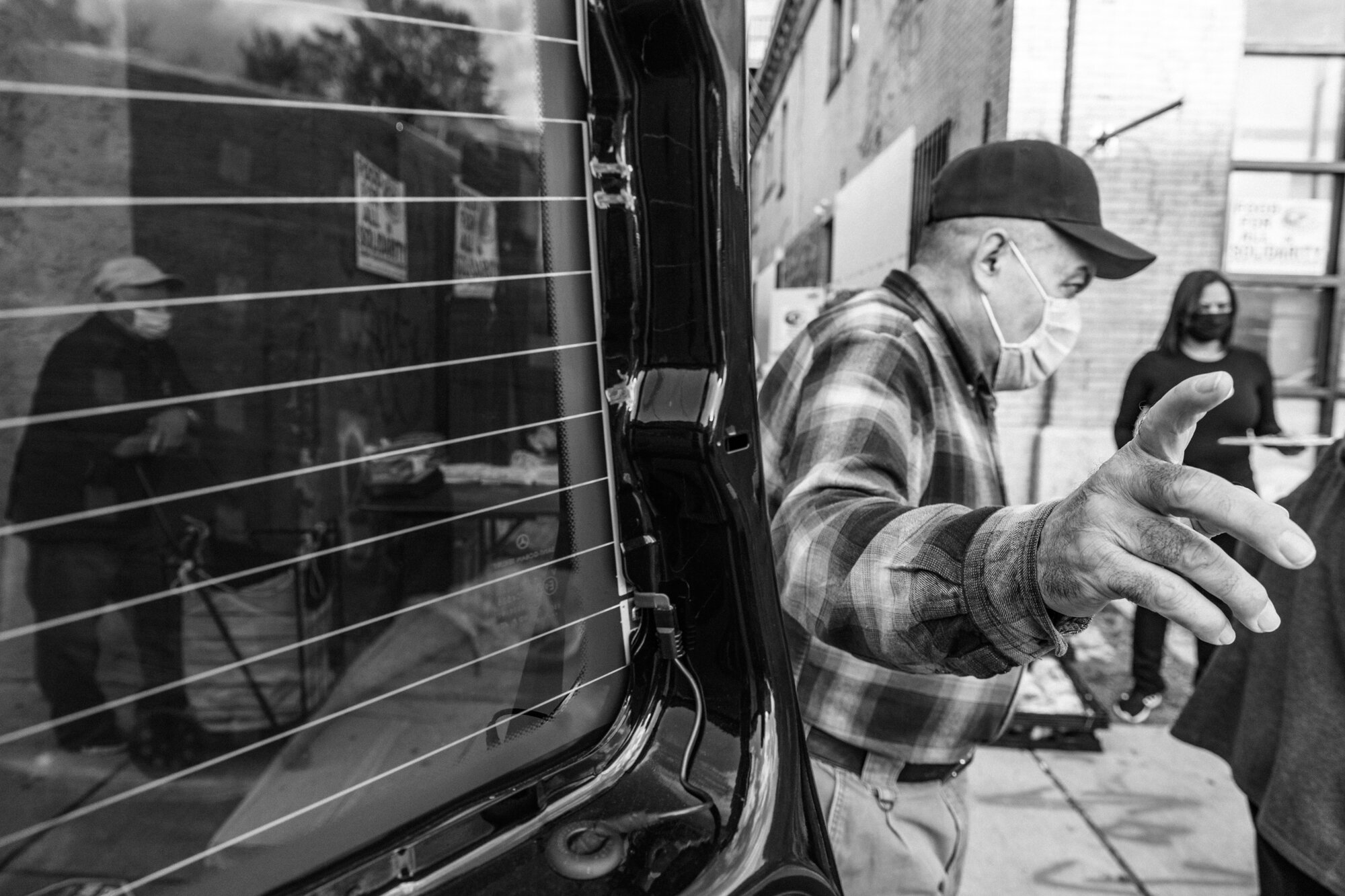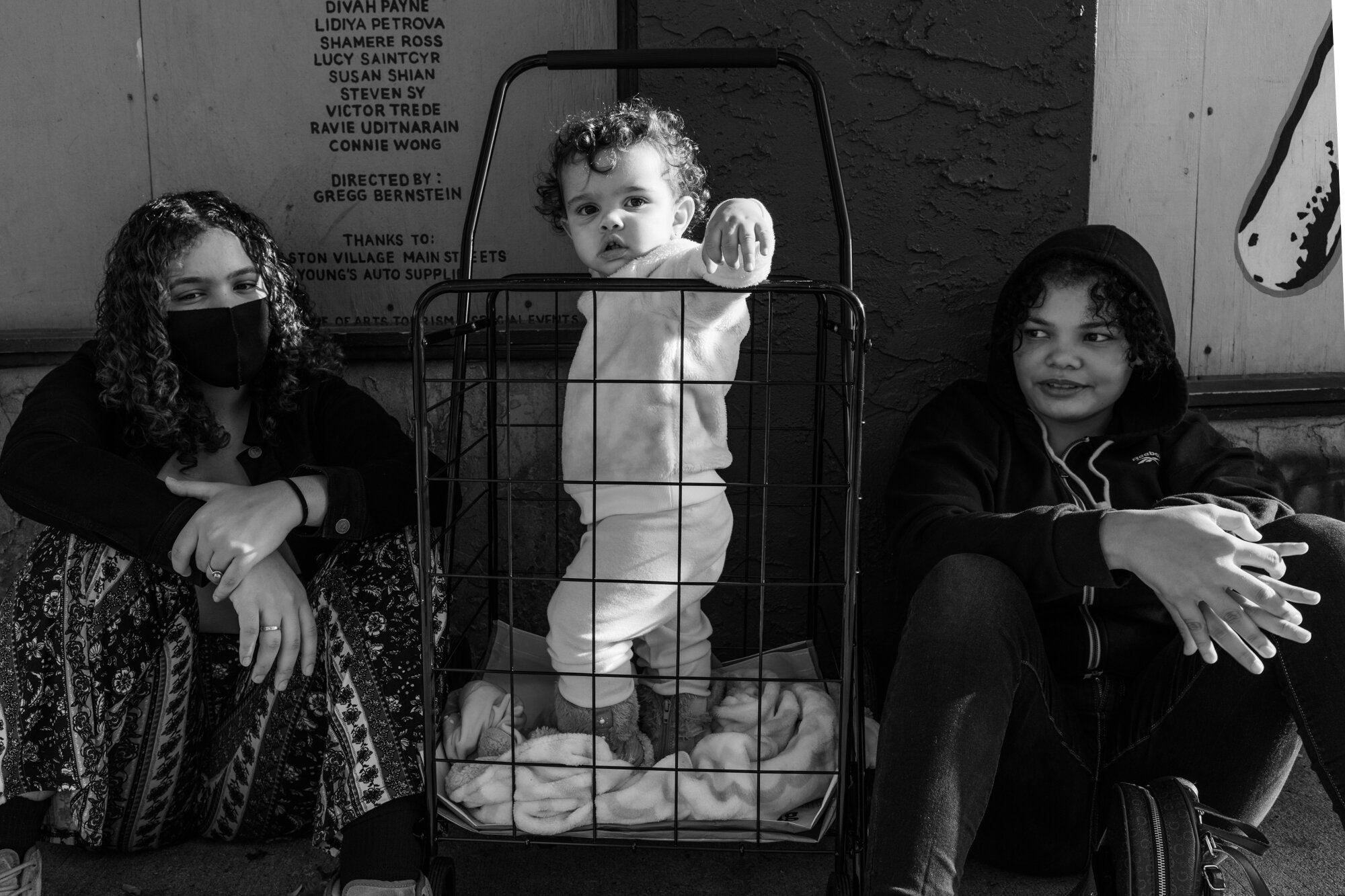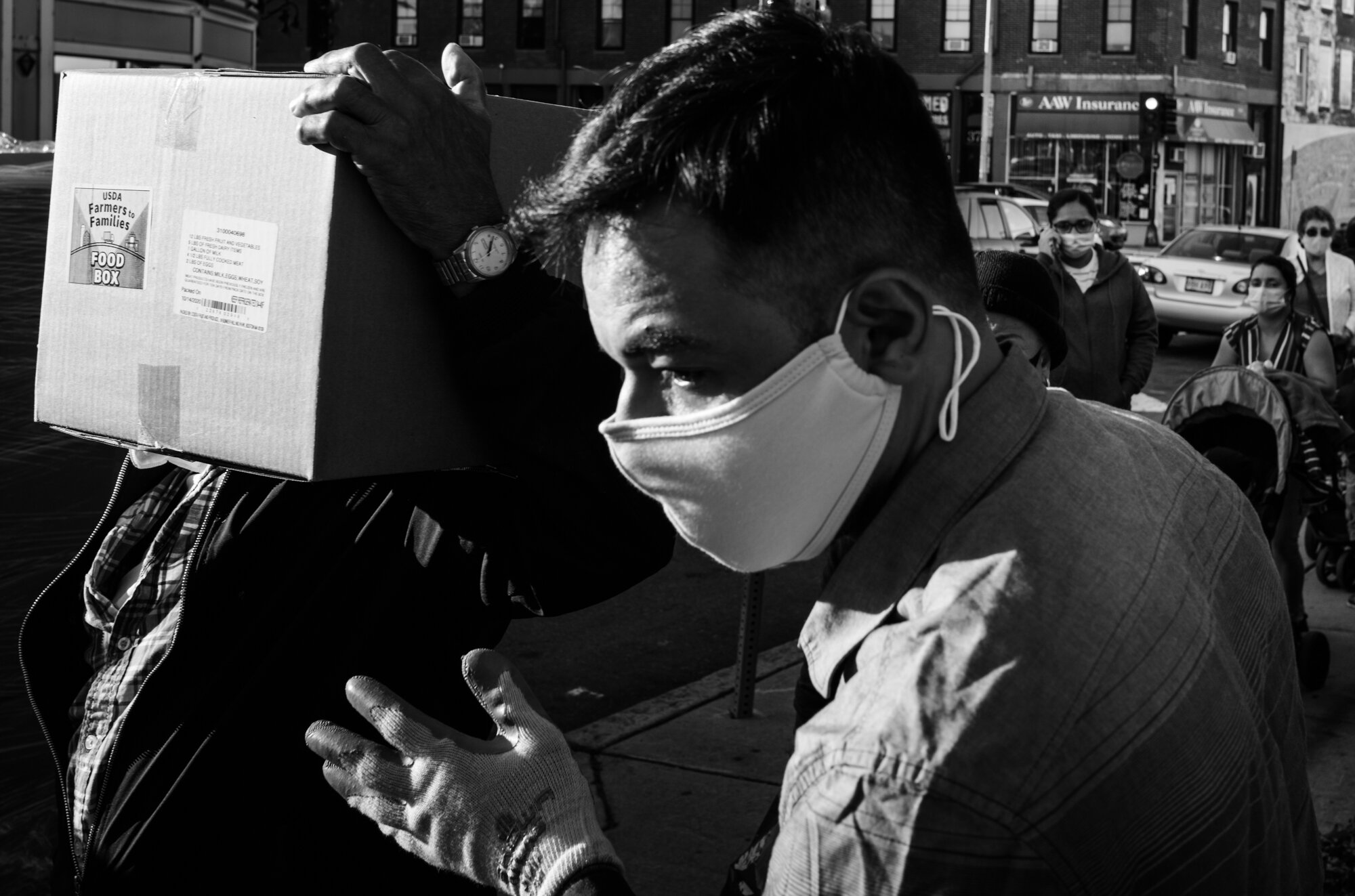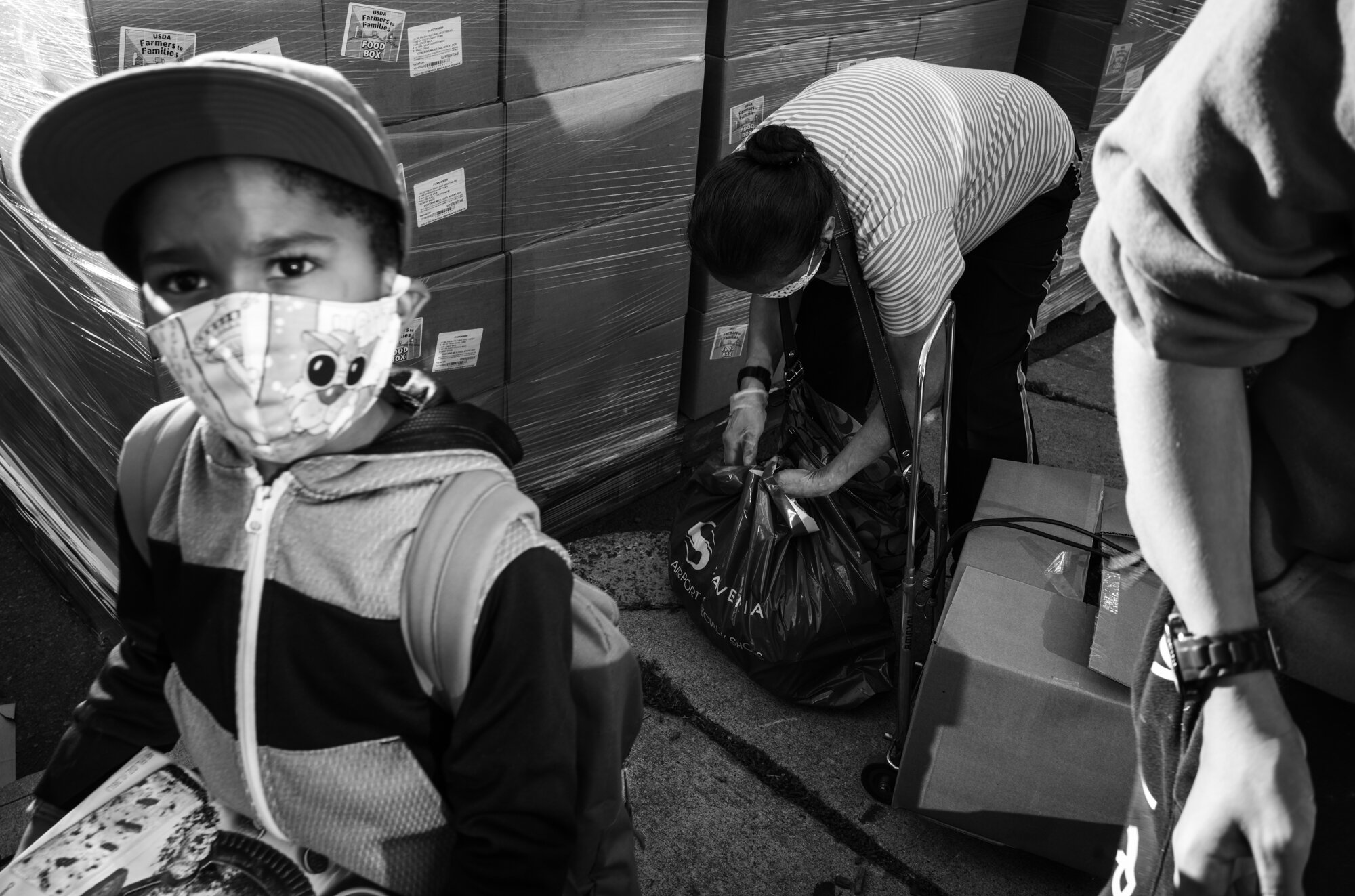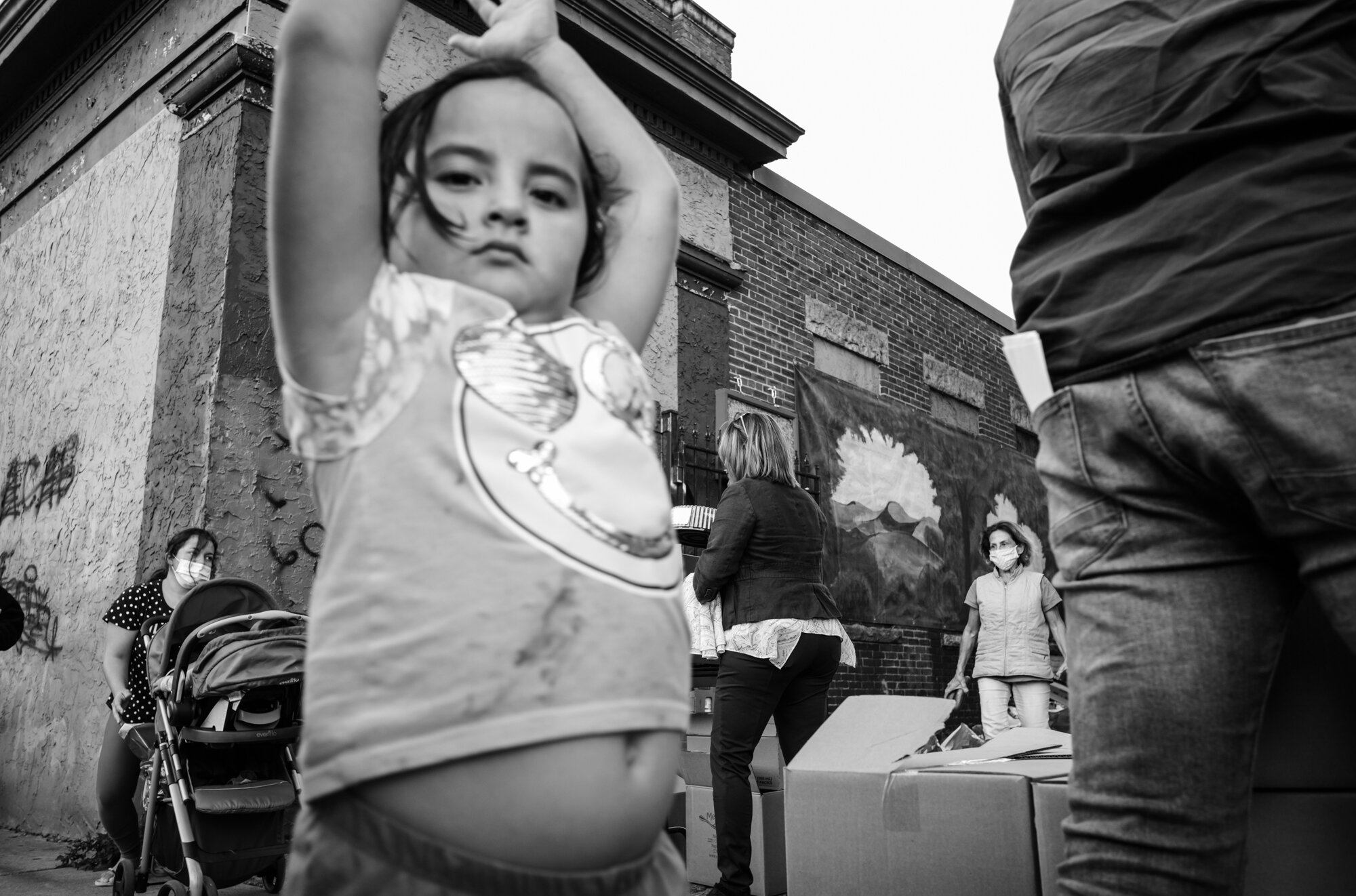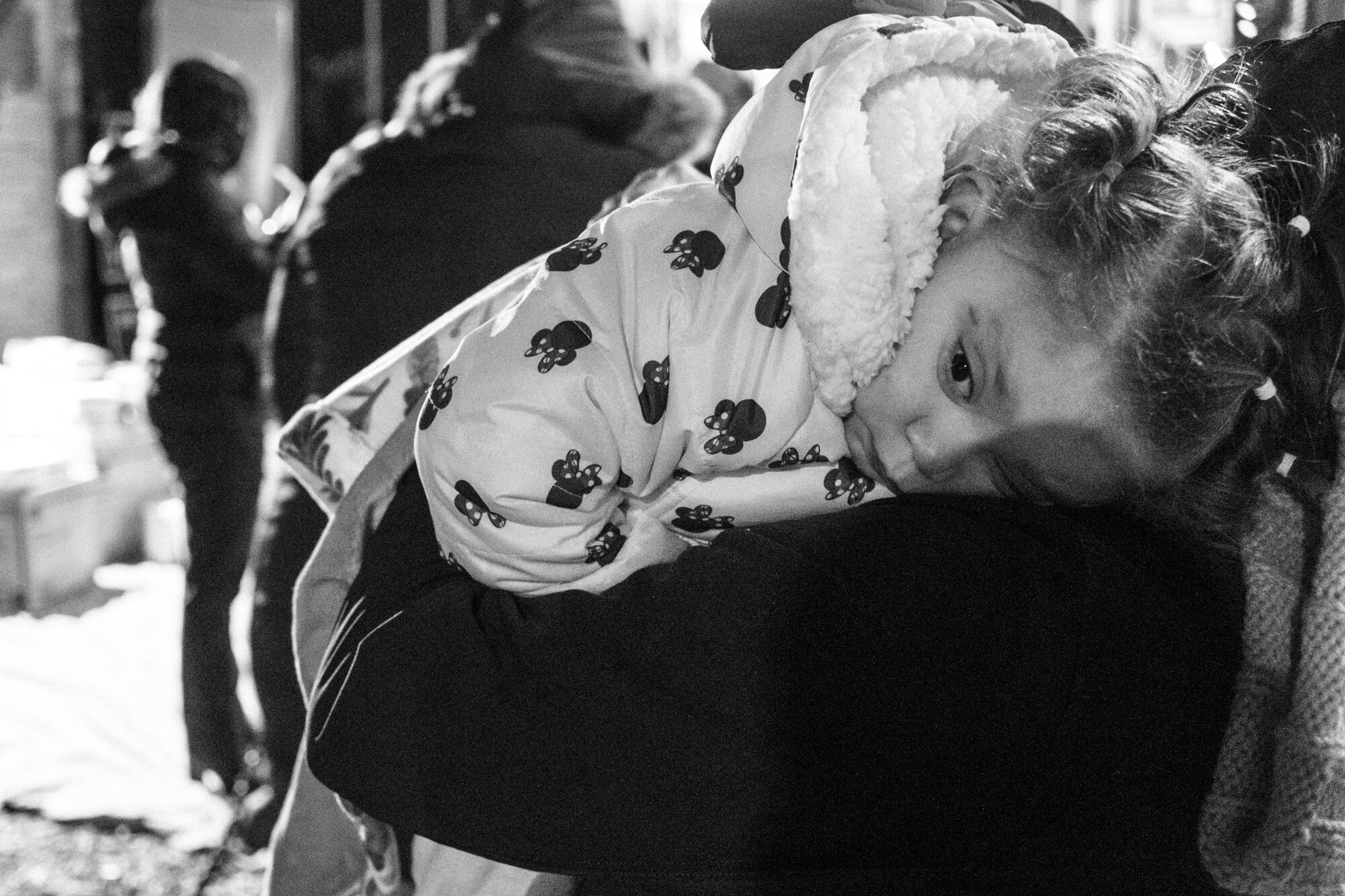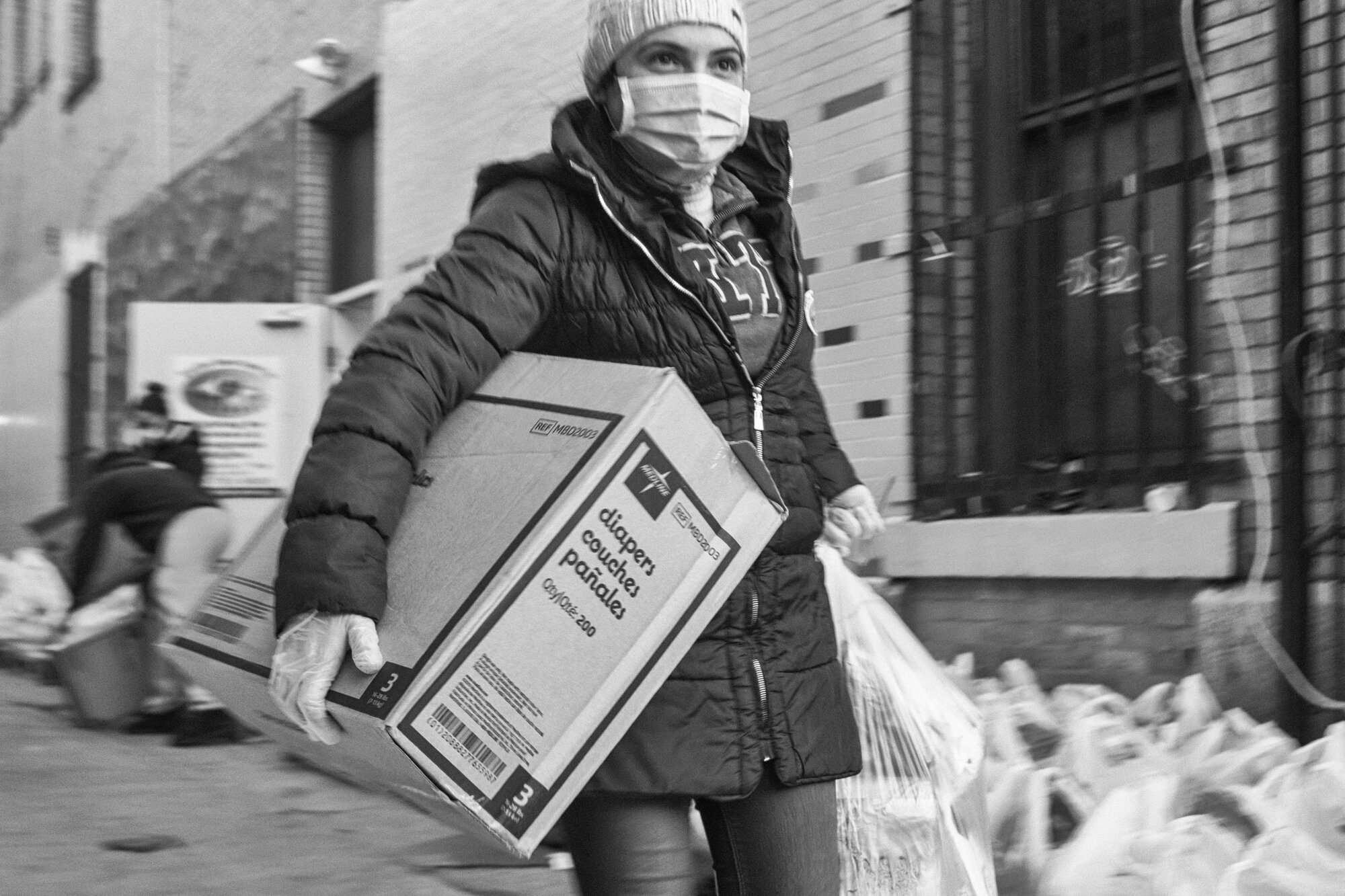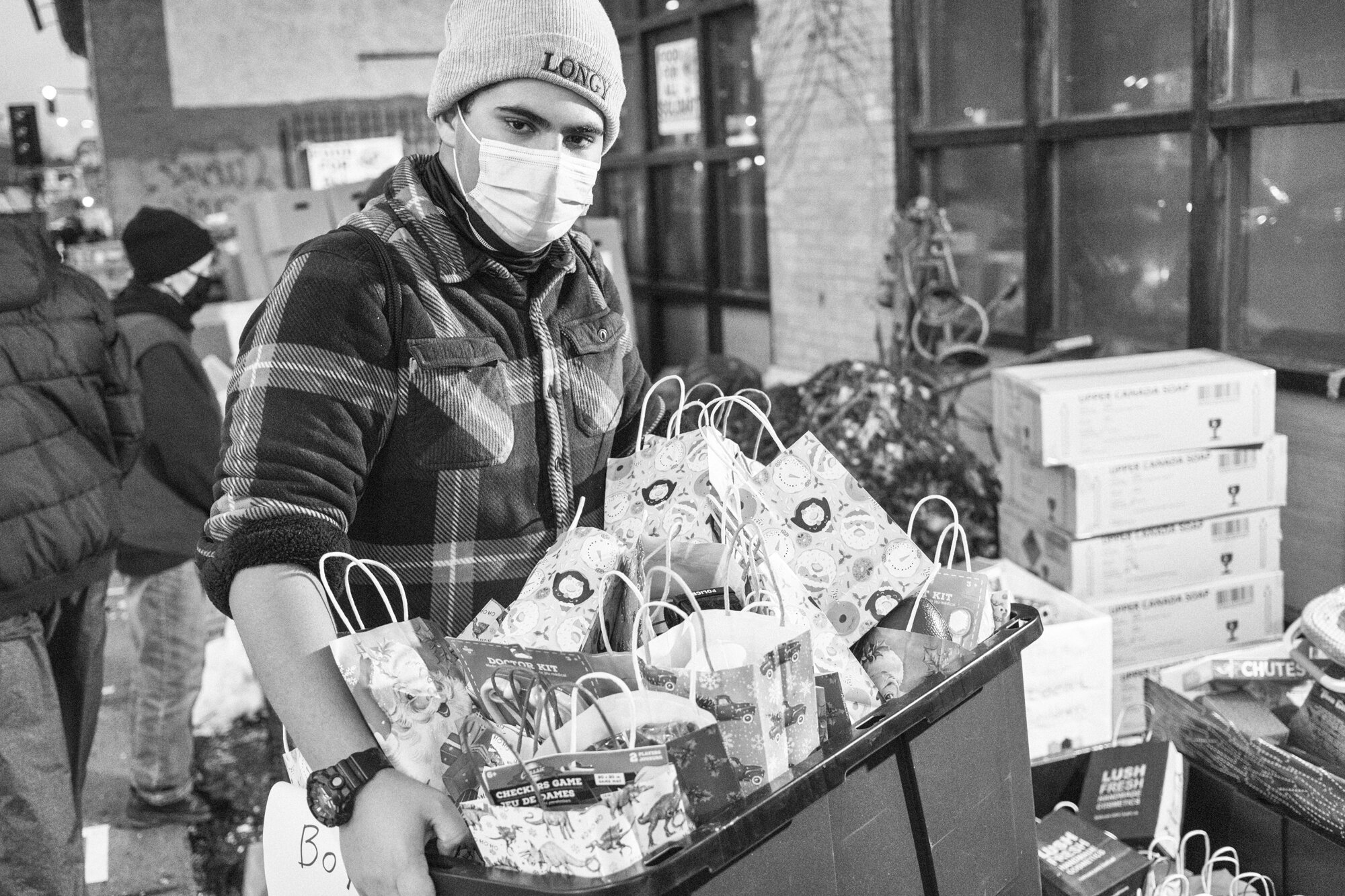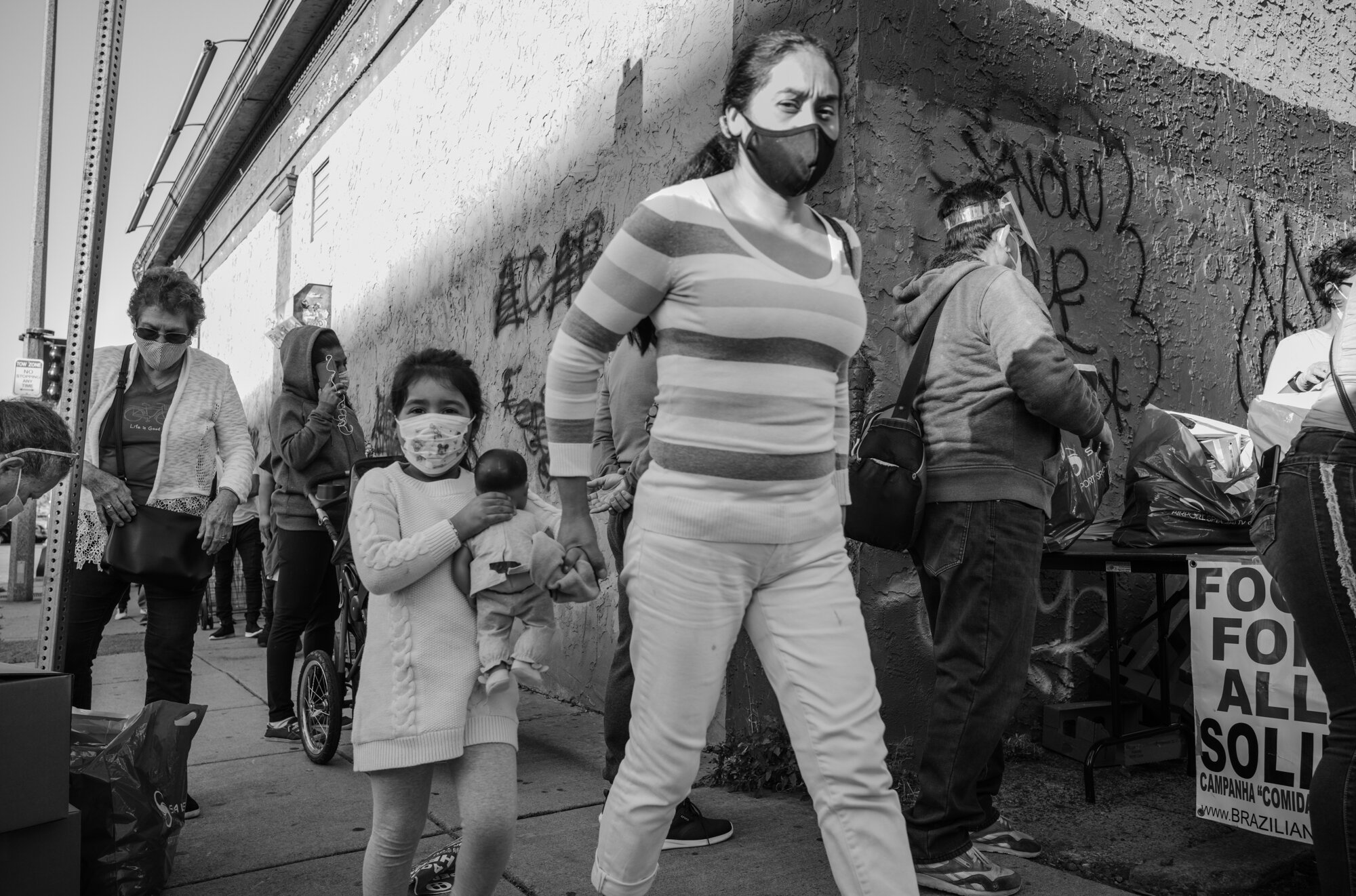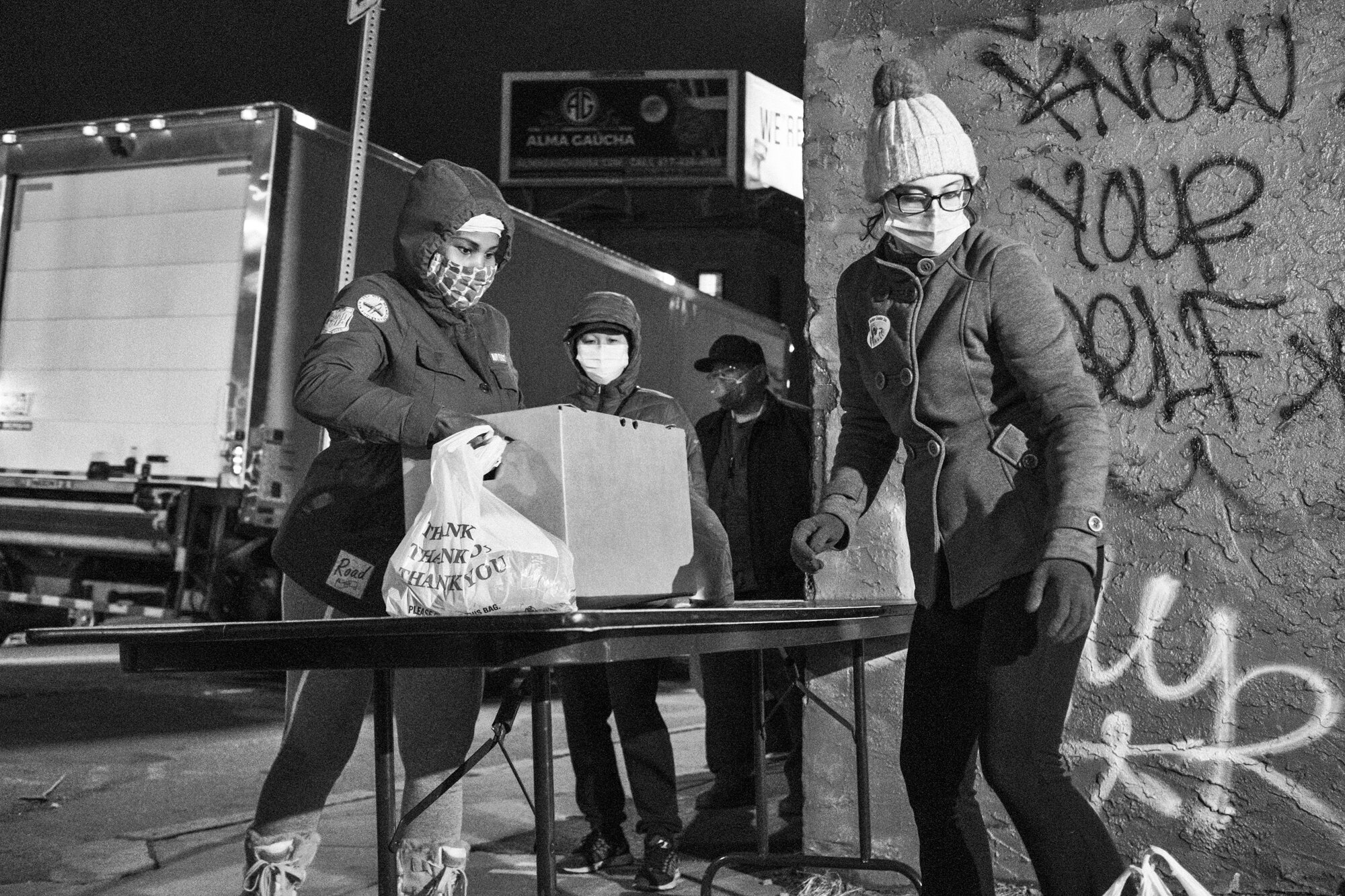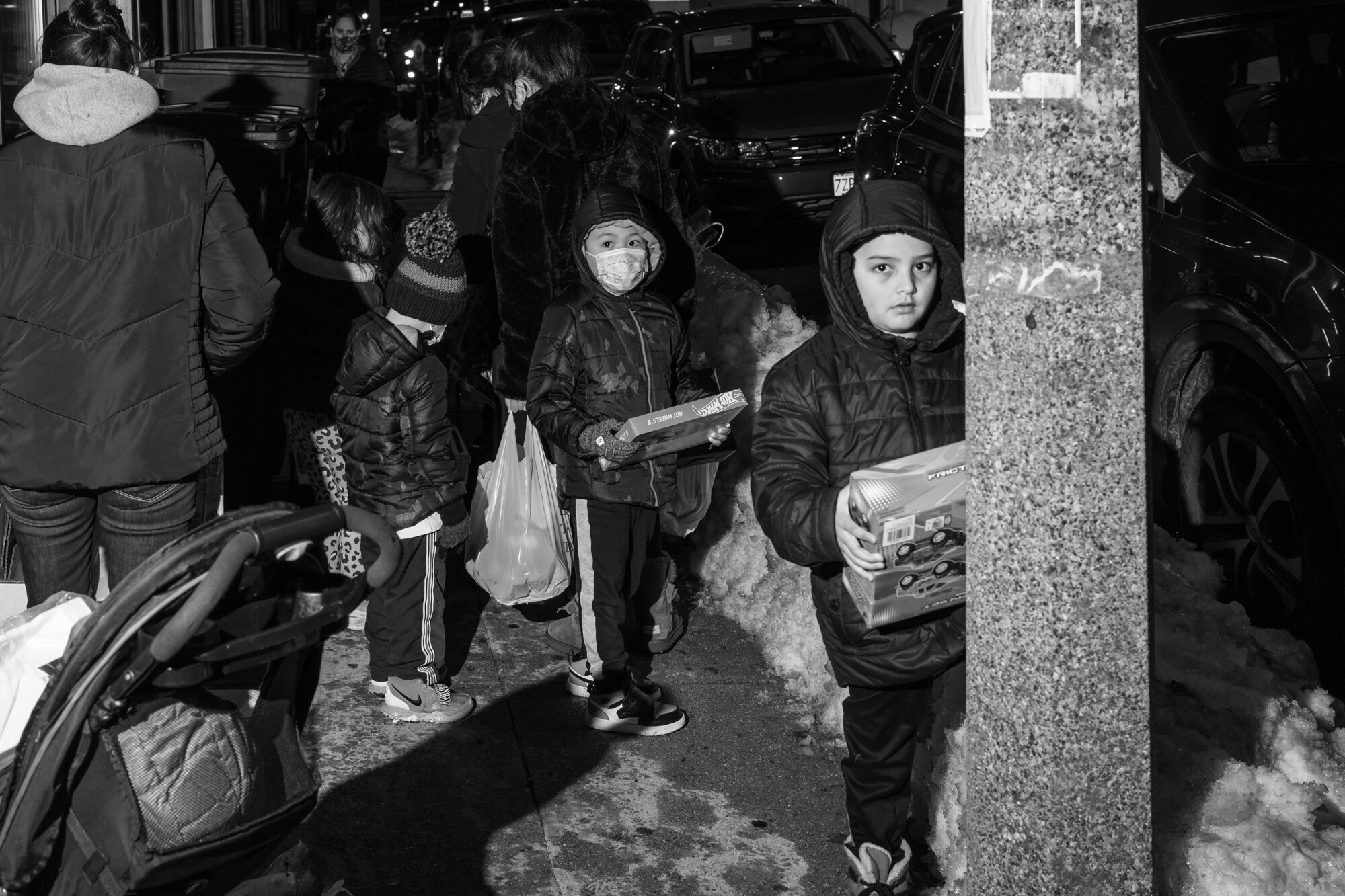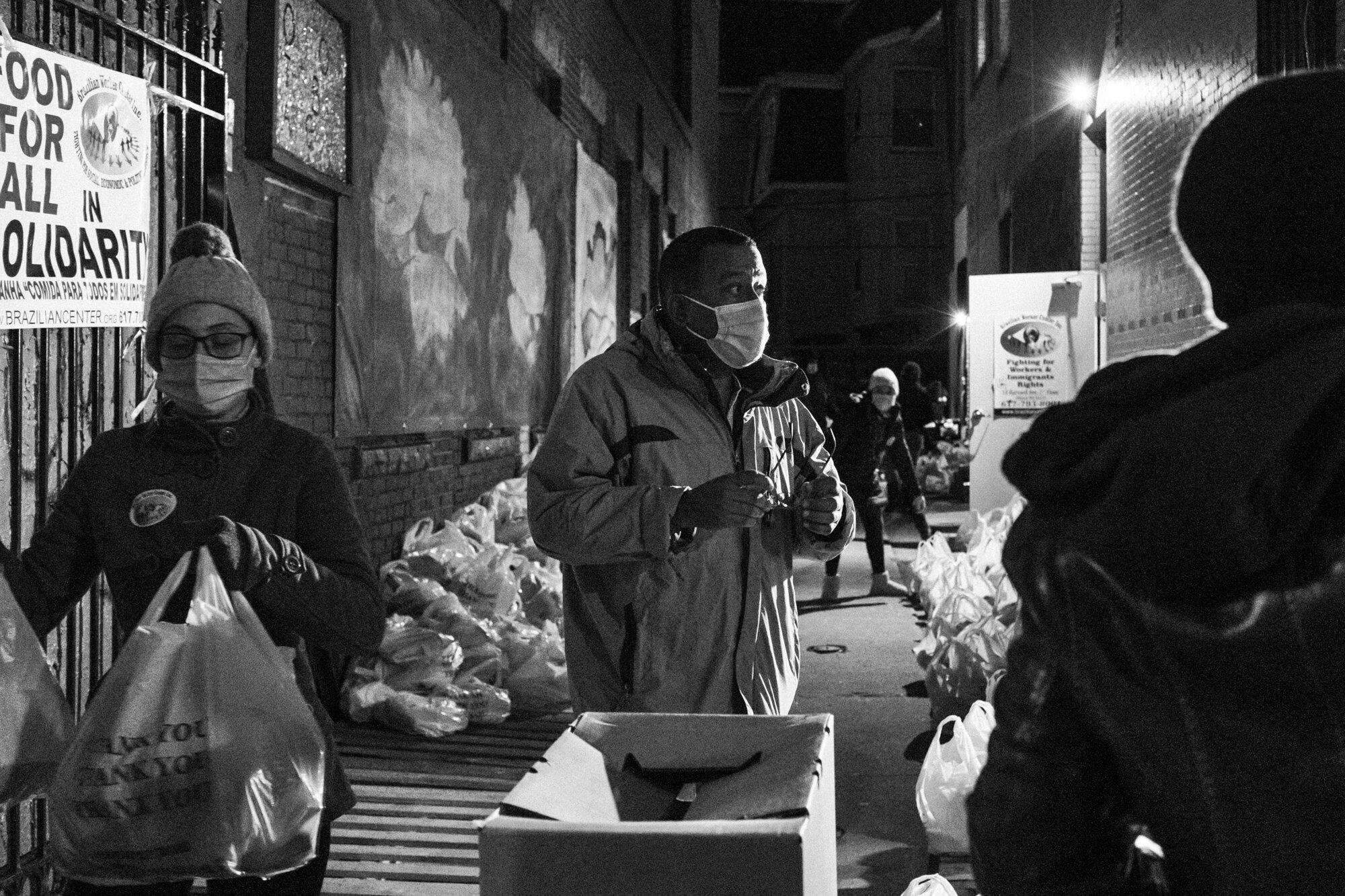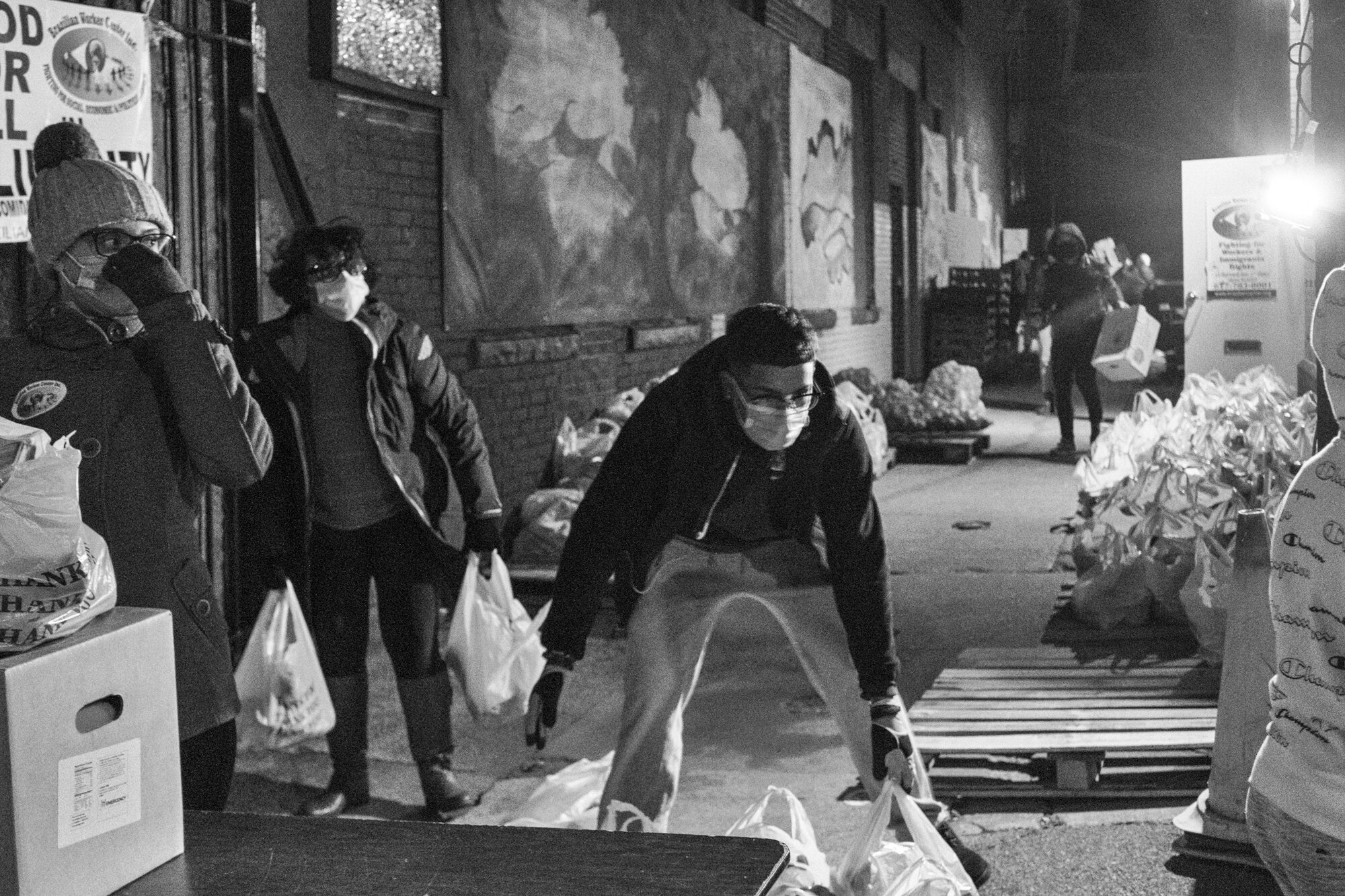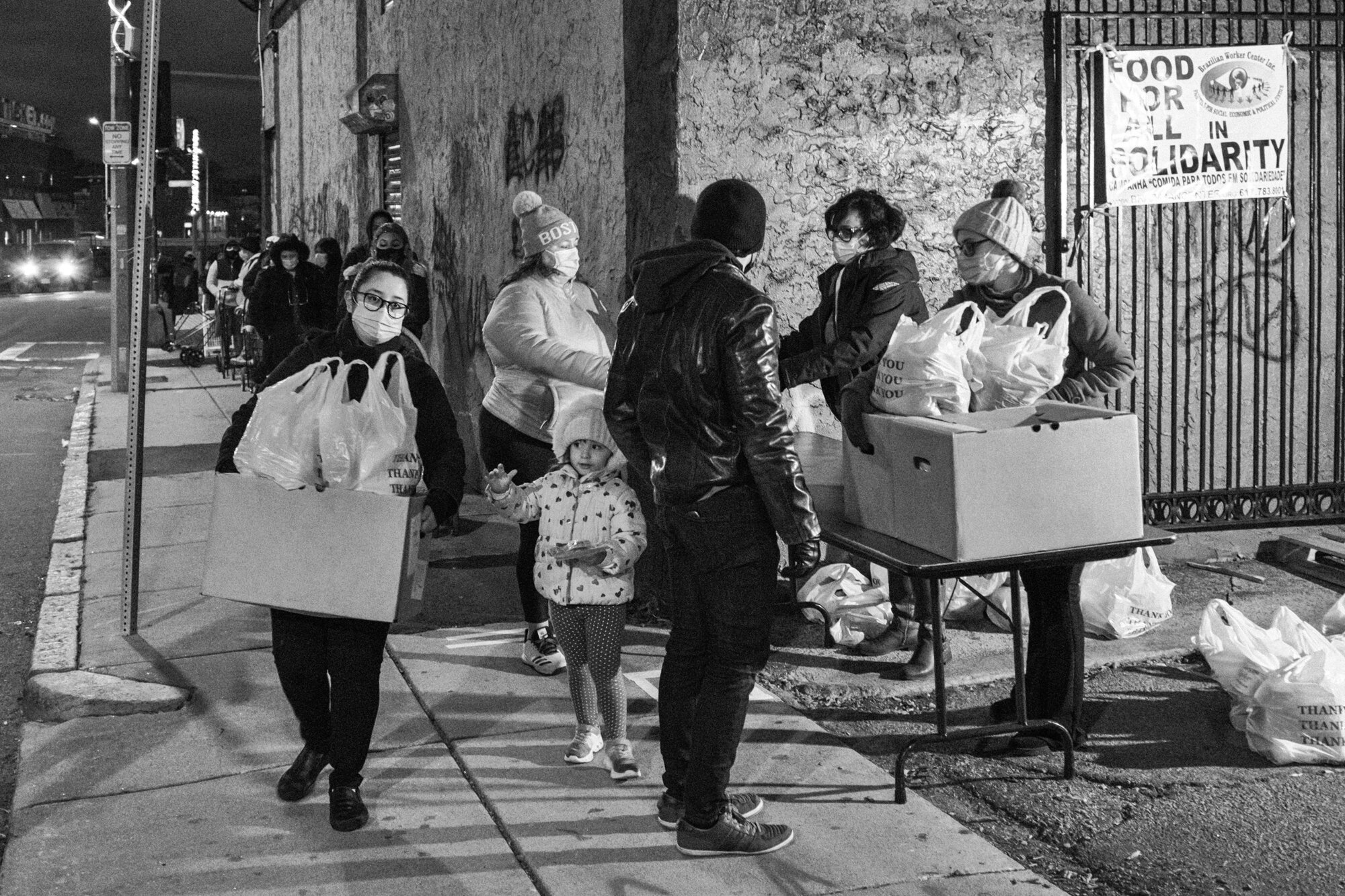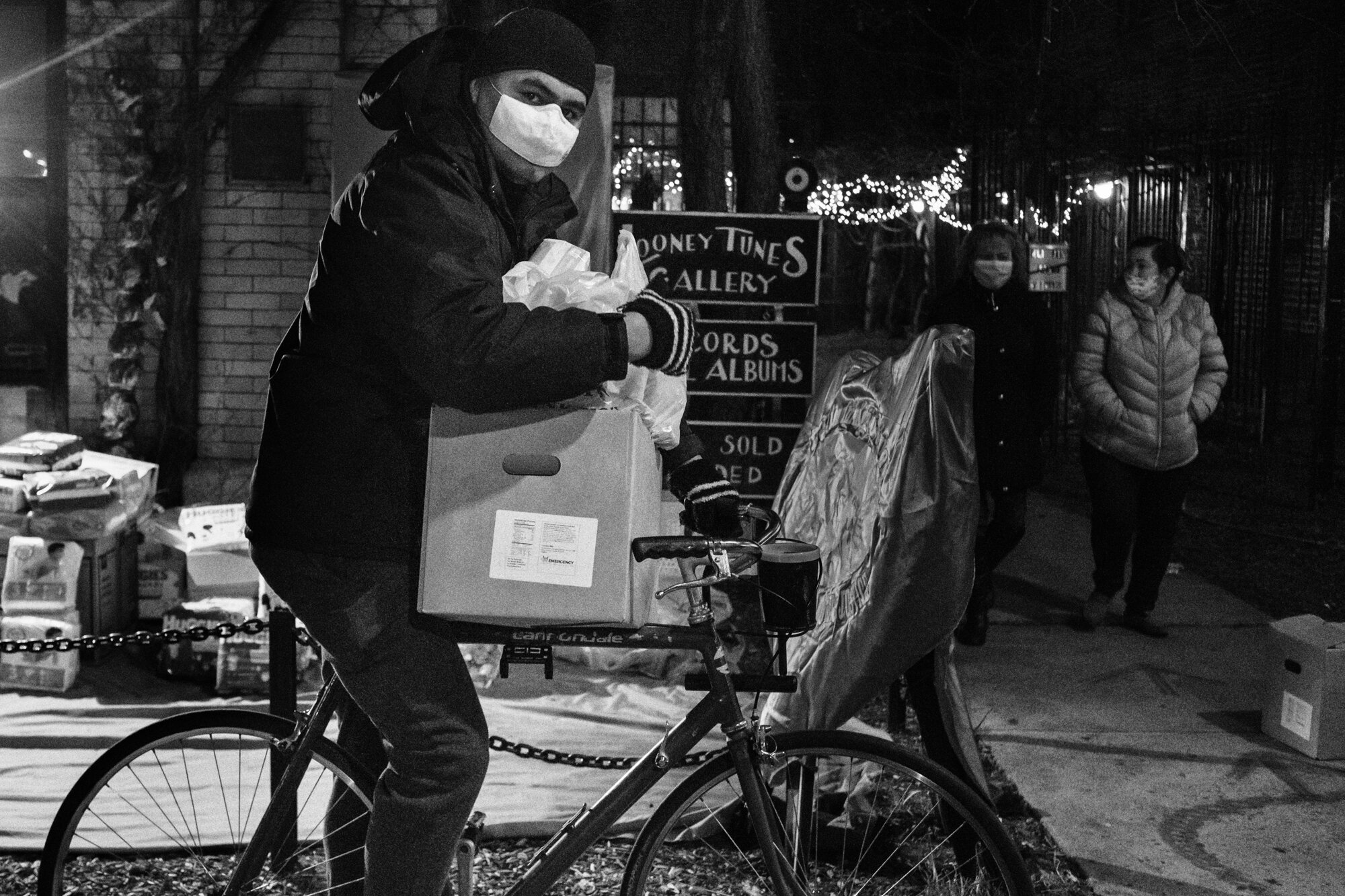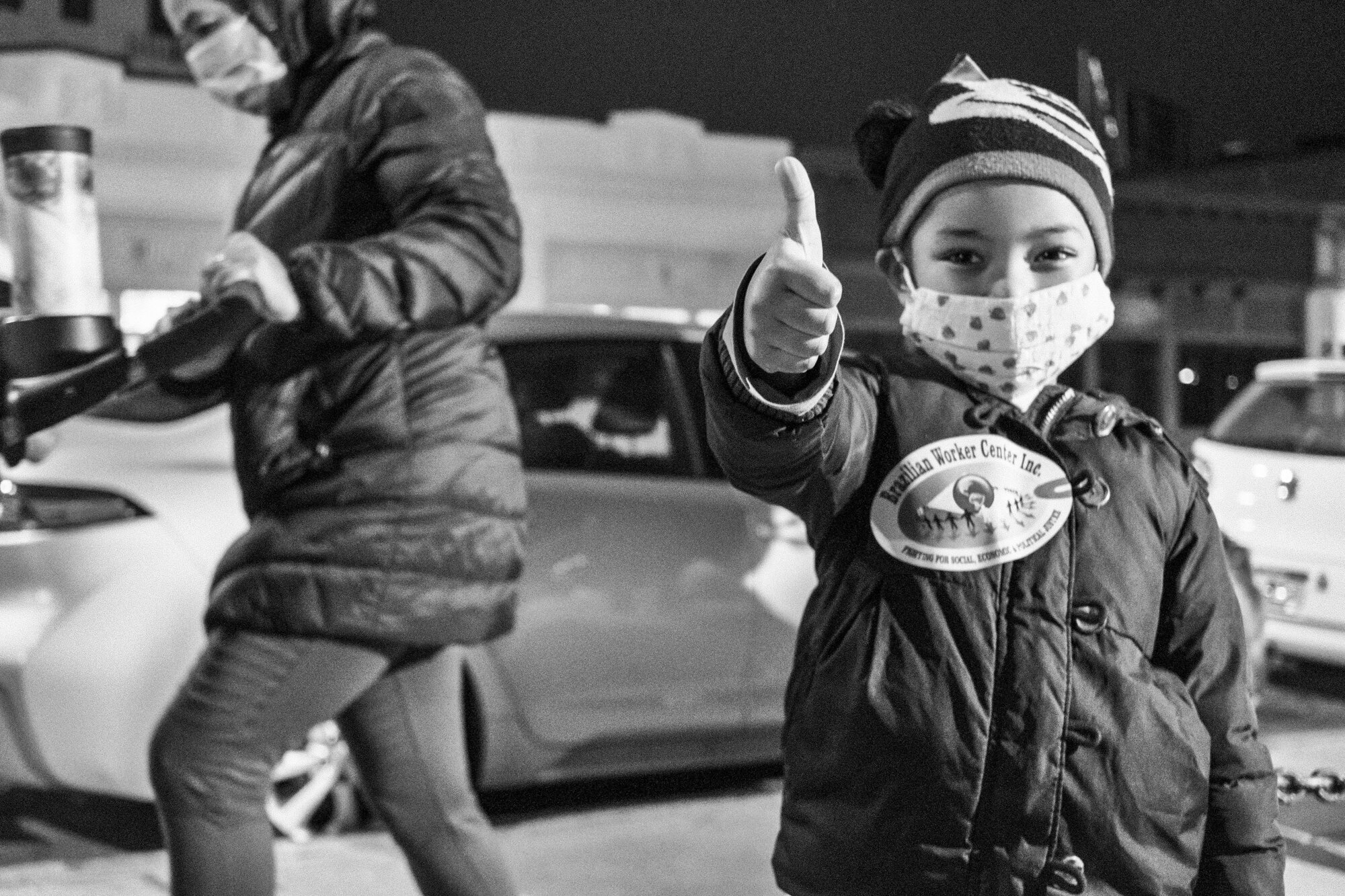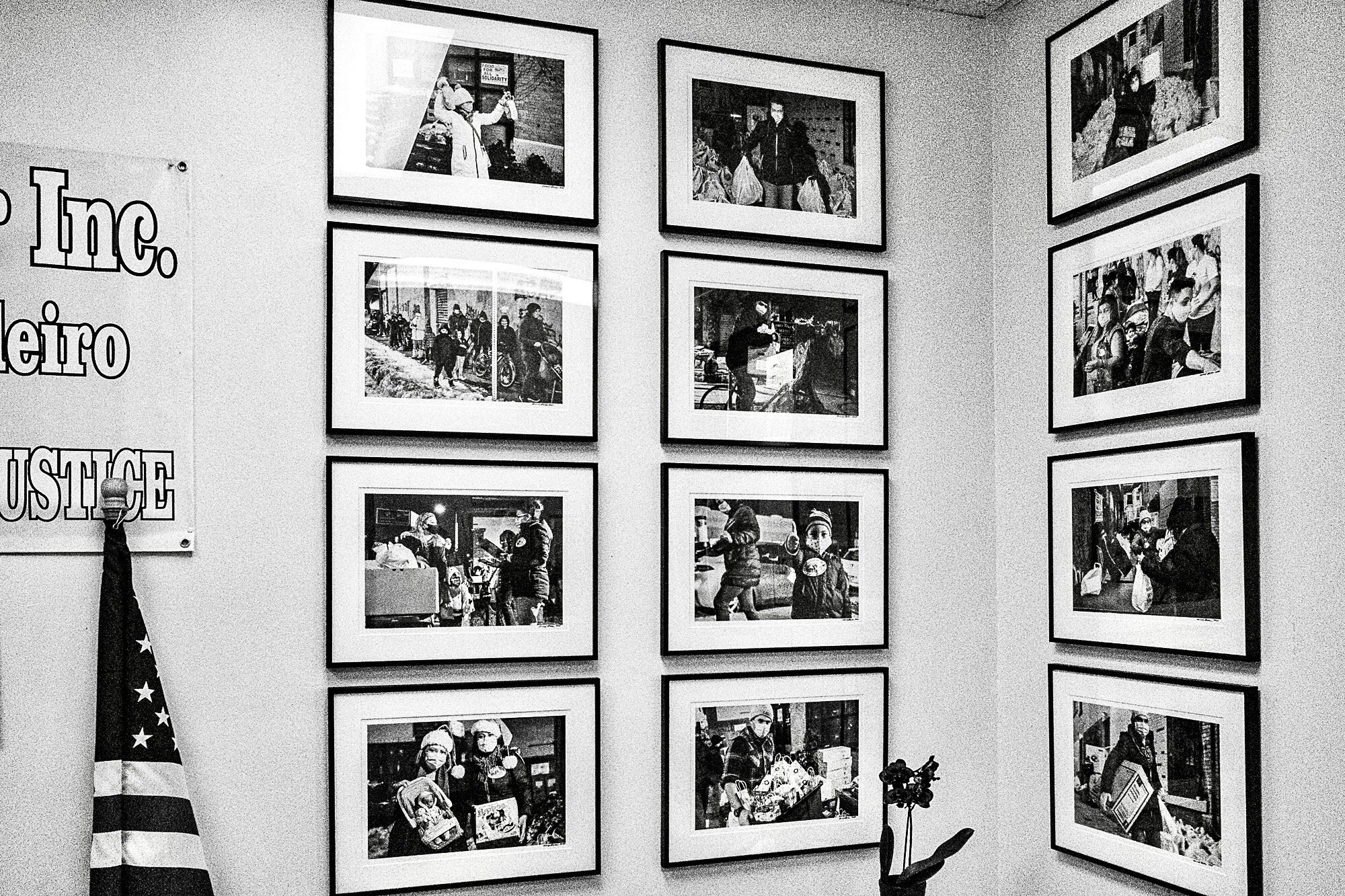In Massachusetts, arguably the most affluent state in the United States, one out of seven people suffer from food insecurity. The pandemic has struck immigrant families especially harsh. Many of them have lost jobs as restaurant workers and domestic employees. And with day care options virtually eliminated, they often have little choice but to stay home, dependent on social services for life’s daily essentials.
In the Allston neighborhood of Boston, the Brazilian Worker Center, an organization typically dedicated to worker rights, has had to pivot and convert itself to a food pantry. With only five full time staff and a team of volunteers the center works all week to source enough food from the likes of Boston Area Gleaners and Fair Foods Boston to serve 500 families every week.
On Wednesdays, families, many with children in tow, begin lining up at 2:00 pm and wait hours until the center starts distributing fresh produce, groceries and staples such as diapers.
By 4:00 the line stretches more than three city blocks, a visual that, in and of itself, should be shocking. Sadly, however, here are thousands of needy people standing in dozens of similar food lines throughout the city.
